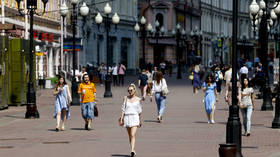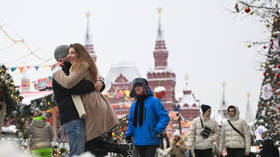Vast majority of Russians distrust each other – poll

Nearly 73% of Russians agreed it is necessary to be cautious in interactions with fellow citizens, the latest survey conducted by the long-established Public Opinion Research Center (VCIOM) has found.
Only about a quarter of respondents (24%) are ready to trust most people, as the remaining 3% are undecided, the poll indicated.
People in Russia, however, seem no less confident in each other than they were six years ago, the researchers noted; in 2018, a similar poll suggested that 74% of respondents demonstrated caution when engaging with others.
Trust in others directly depends on financial stability; the latest poll indicates that confidence was lowest among people with lower incomes. Respondents who assess their family’s financial situation as “very good” and “good” demonstrated a tendency to trust people more often (30%) than those who think that their finances are “bad” or “very bad” (15%).
Men tend to exhibit less trusting behavior toward others than women in social exchanges. Some 40% of male respondents said that they expect other people to deceive them when the occasion arises, while only 30% of females shared their trepidation. Meanwhile, 51% of women and 45% of men expect honest behavior from other people in any situation; 21% and 15%, respectively, were undecided.
The researchers added that responses were different in various age groups, with younger people being more anxious about others’ reliability: 45% of those aged 18–24 fear other people may to let them down at some point, while the share of older age cohorts giving the same answer ranged from 28% to 35%.
Commenting on the results of the latest poll, Valery Fedorov, the head of VCIOM, stated that the level of interpersonal trust between Russians hit its nadir during the 1990s, when the nation underwent a severe crisis and shortages of basic goods due to the rapid transition from a state-planned to a market-based economy.
The official added that the tendency towards the normalization of public life had boosted trust, but was interrupted due to new “traumas” in society, including an extension of the retirement age in 2018, the coronavirus pandemic, and the escalation of the Ukrainian conflict, among other things.
“The younger generation, on which sociologists rest their hopes when it comes to the potential waning of distrustful trends, turned out to be victims of new, difficult times,” Fedorov said.












